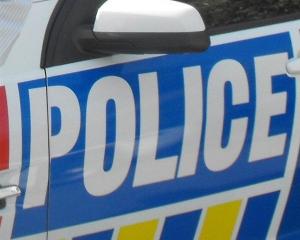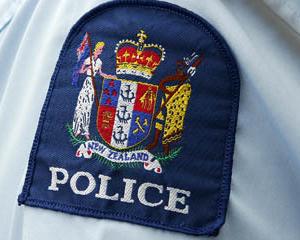Justice Minister Simon Power yesterday unveiled a new alcohol reform package aimed at striking the right balance between those who abuse alcohol and those who drink responsibly.
"What the Government has heard from the New Zealand public is that the pendulum has swung too far towards relaxation of liquor laws."
Alcohol contributed to 1000 deaths a year and was implicated in 30% of all offences recorded by police.
"The statistics can't be ignored," Mr Power said.
Dunedin and Clutha area commander Inspector Dave Campbell welcomed the Government's support of several of the Law Commission's proposals.
"A significant amount of violence and disorder is caused by people under the influence of alcohol, as well as many other types of offending," Insp Campbell said.
"Increased restrictions along with enforcement will improve public safety."
He intended to write to each newly-elected city councillor in late October seeking support for a one-way door policy and an earlier closing time of 4am.
Otago Rural Area commander Inspector Mike Cook said the "Government had signalled its intentions" and police would continue to work with local authorities to minimise harm caused by alcohol.
As part of the liquor reform package, the Government adopted in full, or in part, 126 of the 153 recommendations in the Law Commission's 500-page report Alcohol In Our Lives: Curbing the Harm, which was tabled in Parliament in April.
Under the proposal, communities could specify the concentration, location, and hours of alcohol outlets, including one-way-door policies for both on- and off-licences in their area through the adoption of local alcohol policies.
Other key changes include the introduction of a split purchase age for alcohol (18 for on-licences and 20 for off-licences), the banning of ready-to-drink (RTD) bottles with more than 5% alcohol content, and making it an offence for anyone other than a parent or guardian to provide alcohol to an under-18-year-old without the consent of a parent or guardian.
The split purchase age will be subject to a conscience vote, with the reform legislation expected to be introduced to Parliament in October.
Some recommendations not adopted included making it an offence for anyone under 20 to drink or possess alcohol in a public place, and an end to licensing exemptions for New Zealand Police, Fire Service and Defence Force canteens.
Parliament would have its licensing exemption removed in an effort to "lead by example", Mr Power said.
The reforms were viewed as either a glass half full or a glass half empty by many of the interest groups associated with alcohol.
University of Otago head of preventive and social medicine Jennie Connor said the Government had misread the public's concerns and introduced small steps rather than the substantial change required to halt New Zealand's heavy drinking culture.
Salvation Army Bridge and Oasis Centre manager Glen McLennan said he would have liked to have seen the Government adopting the commission's recommendations in full.
He was disappointed the Government had made alcohol into a youth issue, as the majority of problem drinkers were over the age of 20.
Hospitality Association chief executive Bruce Robertson described the proposed reforms as a "mixed bag", and was concerned a restriction on closing hours would affect bars wanting to screen live sporting events.
Of most concern for Andrew Lane, the Dunedin-based director of the South Island-wide Night 'n Day chain, was whether the company's 28 stores would be classified as grocery stores or dairies under proposed changes to off-licences.
Dunedin City Council liquor licensing and projects officer Kevin Mechen was not prepared to comment until he had a chance to read the full report.
Clutha Mayor Juno Hayes said empowering communities to have a greater say in liquor policy could lead to confusion with different areas having different laws.
However, the changes were a "step in the right direction".
The new legal obligation to be placed on anyone hosting a party for people under 18 was likely to become the most controversial aspect of the proposed law changes, NZPA reported.
Prime Minister John Key, who has teenage children, said it was not unreasonable to expect hosts to have to find out whether their young guests had parental permission to drink.
"I don't want other parents to supply our children with alcohol unless we have given consent," he said yesterday.
Party hosts who do give liquor to minors without parental consent could face a $2000 fine and get a criminal record.
"What I think it will do is focus parents and those hosting parties on their responsibilities," Mr Key said.
"In the end, we can't legislate away New Zealand's binge-drinking culture.
"The only way that can change is if all of us want to apply a higher standard and understand we need to make a cultural change - and that means parents and guardians actually demonstrating their responsibility as good hosts," Mr Key said.
He said an important part of the proposed new law was that it would give parents opportunities to discuss drinking issues with their children, and talk to them about parental consent for drinking.
"Some parents feel very pressured to supply alcohol to young people and the law doesn't give them and protection at present," Mr Key said.








